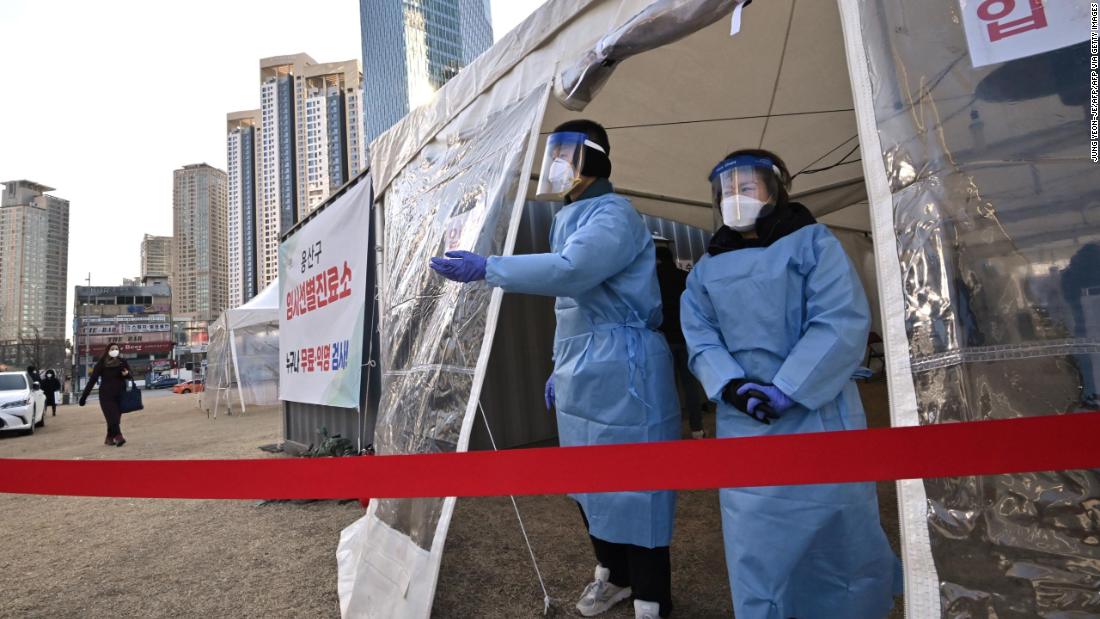The decision, which took effect on Wednesday, required all foreign workers in the capital to undergo coronavirus tests or face fines of up to 2 million Korean won ($ 1,775).
In a press release from the city government on Friday, Seoul city officials said they would now only recommend that foreign workers employed in high-risk companies with dense, unventilated work environments undergo testing by March 31. . companies are tested, the statement added.
The policy has already been implemented in the neighboring province of Gyeonggi, as well as in several other cities and provinces. It is not clear whether other provinces will follow in Seoul’s footsteps.
The policy was labeled by many as xenophobic and discriminatory, with ruling party legislator Lee Sang-min describing it as an “unfair racist action against foreigners” and warning that it would result in “international embarrassment”.
Seoul city officials had denied that the policy was discriminatory, pointing to statistics showing that the proportion of foreign residents among confirmed cases of Covid-19 in the capital jumped from 2.2% last year to 6.3% this month. “I ask for people’s participation and I think of it as a measure to protect the safety of the individual rather than discrimination,” Song Eun-cheol, a Seoul city official, said on Friday.
The decision threatened to create a kind of diplomatic incident, however, with a growing list of nations, including the United States and the United Kingdom, expressing their opposition.
The British ambassador to South Korea, Simon Smith, posted a video on Twitter on Thursday, in which he said: “We believe that these measures are not fair, they are not proportionate and they are unlikely to be effective”. Smith said he had also raised the issue with South Korea’s National Human Rights Commission.
Canada’s ambassador, Micheal Danagher, retweeted the post, saying he and other ambassadors were making similar representations. Rebukes by government ambassadors in the host country are rare, although embassies have not advised their citizens not to follow government rules.
The U.S. Embassy in Seoul also tweeted on Friday: “We raised our concerns with high-level Korean officials and are strongly advocating for fair and equitable treatment for all U.S. citizens in our shared efforts to contain the pandemic.”
Both Seoul City and South Korean health officials had avoided direct questions about the epidemiological reasons for testing foreigners, but not their Korean colleagues.
